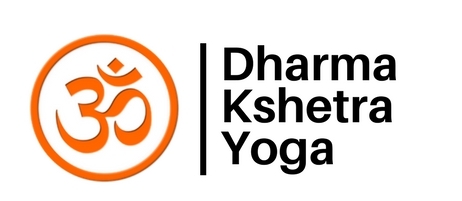Many Western seekers are familiar with Hatha Yoga and Raja Yoga, which are used to manage physical health and mental stresses. A growing number have also heard of Bhakti Yoga, which is often described as the “Yoga of Love” and equated with kirtan and chanting. But there is much more to this vast topic that can benefit our health at all levels.
Bhakti Yoga relates to love, but it is not synonymous with it - “bhakti” comes from the same root as “bhava”, “attitude”. Bhakti is the yoga of attitude adjustment. This can not be overrated, as attitude is everything in life. Look around you in any given situation - there will be people who are cheerful and people who are morose. Despite our convictions to the contrary, outer circumstances have little effect on our inner state. Bhakti Yoga lets us take control of our emotional expression so that we can feel what we want to feel, wherever we are. This amazing freedom to greet any experience in life with positivity and creativity is the pinnacle of Bhakti Yoga.
Bhakti works with our hearts - meaning not only our emotional selves but our physical, beating organs. In the modern world, this must become a priority. Consider these statistics from the American Heart Association:
Heart disease is the No. 1 cause of death in the world and the leading cause of death in the United States, killing over 375,000 Americans a year.
Nearly half of all African-American adults have some form of cardiovascular disease, 48 percent of women and 46 percent of men.
Cardiovascular diseases claim more lives than all forms of cancer combined.
Despite all the advances in technology and material comforts - or perhaps because of them - there is something seriously wrong with our hearts. Researcher Kristin M. Whited stated in her 2016 thesis that “Results from the present study indicated that social media does elicit less of an empathic response from those who are the consumers of a personal story as compared to the same story being shared in a face-to-face setting.” In other words, our reliance on technology to enhance our relationships may actually deaden the emotional bond between us and others.
One well-known way to practice Bhakti Yoga, kirtan, is good for your heart: clapping your hands in time with the music stimulates cardiac function. We take short breaths in and extend our exhalations tremendously when we sing; our heartbeat slows down with exhalation, so singing can reduce the heart’s rate and workload. Kirtan is practiced in a group where you can see and feel others’ emotional reactions and learn how to adjust your own with rhythm and melody. There are 8 other distinct Bhakti techniques, including:
Seeing everyone around you as an expression of the divine (Vandanam). This includes cultivating humility toward all, that is, seeing everyone as worthy of equal care, justice and compassion. It is said that the renowned Swami Sivananda used to practice this intensely, even bowing down to animals as he glimpsed the divine in them.
Service. A growing body of scientific research is demonstrating that we are hard-wired to serve: when we do good for others, we are actually doing even better for ourselves.
Shravanam: hearing stories about the divine in any form. How do you feel after you hear a traumatic news story? Are you affected emotionally? Bhakti Yoga posits that we must counterbalance such effects by hearing stories about the inherent good in the world. This can include listening to stories from sacred literature, studying the lives of saintly people, and sharing good news with others.
Attitude adjustment through Sakhyam (cultivating friendliness) and Atma nivedanam (“not my will but thine be done”).
There are other aspects to Bhakti Yoga, including yamas and niyamas. You may be familiar with the yamas and niyamas of Raja Yoga - non-violence, truthfulness, etc. - but likely don’t know that each branch of yoga has their own. For example, Swami Sivananda’s practice of recognizing the divine in all is linked to the yama of forgiveness. Swami Niranjanananda Saraswati, in his book Yoga Chakra 2, suggests reflecting on the following questions to cultivate this yama:
Bring to mind one situation from the past when you were not forgiving. To what extent are you holding on to it - strong, medium, weak?
What is the feeling that memory generates in you? Hurt, anger, frustration, sadness, any other?
Bring in the thought of forgiveness and try to forgive the other person. Do you find this easy or difficult? Is there a tool you can apply (thinking of other times I was forgiving, thinking of someone else who forgave another, trying to see the other’s perspective) to make it easy?*
We have only scratched the surface of this incredibly broad and relevant aspect of the yogic sciences. Bhakti yoga can be the focus of a lifetime of study and, as one of the paths that can be followed at every stage of life, can bring profound changes over your lifetime.
We offer the bhakti yoga practice of kirtan monthly in our Healing Meditations, Shivaratri, Navaratri, and other programs. Check here for the next event!

